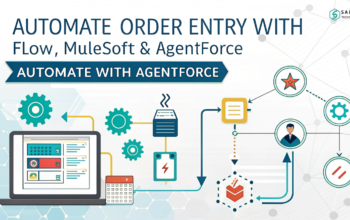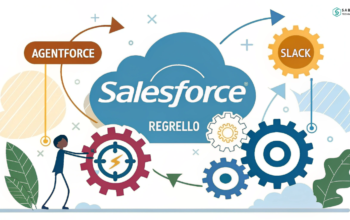Learn Salesforce data security tips and compliance Salesforce strategies to meet 2025 privacy regulations like GDPR and CCPA.
In 2025, data privacy in Salesforce is more critical than ever. With evolving regulations such as GDPR, CCPA, and HIPAA, organizations must be proactive in securing sensitive customer data. This guide covers essential strategies for maintaining Salesforce data security and ensuring ongoing compliance in Salesforce environments.
Why Data Privacy in Salesforce Matters More Than Ever
With cyber threats and regulatory scrutiny increasing, businesses can’t afford to overlook data security. Regulatory bodies continue to tighten compliance requirements, and penalties for breaches are severe. Fortunately, Salesforce provides a robust framework to help you align with modern data protection laws—if you use it correctly.
1. Understand the Regulatory Landscape for Salesforce Data Security and Compliance
To start, it’s crucial to understand what laws apply to your organization. Regulations like:
- GDPR (General Data Protection Regulation) — applies to EU citizens.
- CCPA (California Consumer Privacy Act) — applies to California residents.
- HIPAA (Health Insurance Portability and Accountability Act) — applies to healthcare data in the U.S.
Each regulation requires specific steps to ensure lawful processing and storage of personal data. As a Salesforce admin or compliance officer, knowing these laws will shape your approach to Salesforce data security.
2. Enhance Salesforce Data Security and Compliance with Field-Level Security and Permission Sets
Transitioning to practical solutions, field-level security and permission sets allow fine-grained control over who sees what data. This ensures only authorized personnel can access sensitive fields such as Social Security numbers or medical records.
Implementing these settings is not just good practice—it’s a fundamental step in achieving compliance in Salesforce.
3.Implement Data Encryption and Protection at Rest and in Transit for Salesforce Security and Compliance
Salesforce Shield offers platform encryption, a powerful tool that encrypts data both at rest and in transit. Encrypting data protects it from unauthorized access even if there is a system breach.
Especially for sectors dealing with HIPAA and GDPR data, encryption is a must-have feature.
4. Audit Trails and Monitoring
Moreover, compliance teams should utilize Field Audit Trail and Event Monitoring to track user activity. These tools provide visibility into who accessed or changed specific records. If something goes wrong, an audit trail helps you respond quickly—and legally.
5. Enable Data Retention and Deletion Policies
Another best practice is enforcing data retention policies. Salesforce allows you to automate the deletion or anonymization of data after a specified period. This aligns with laws requiring the “right to be forgotten” or data minimization.
For example, under GDPR, users can request their data be deleted. Automating this through Salesforce workflows supports timely, compliant responses.
6. Train Your Teams Regularly
Compliance is not a one-time task—it’s an ongoing process. Train your legal teams, Salesforce admins, and other stakeholders to recognize risks and use secure practices. Regular updates ensure everyone is aligned with evolving privacy laws and system updates.
7. Use Third-Party Tools with Caution
Lastly, many Salesforce orgs use third-party applications from the AppExchange. Always vet these vendors for security certifications and privacy policies. One weak link in your ecosystem can compromise Salesforce data security.
Final Thoughts
Ensuring data privacy in Salesforce requires continuous effort, from configuring internal settings to training staff and auditing systems. By following these best practices, your organization will stay compliant, minimize risks, and build trust with your users in 2025 and beyond.
Frequently Asked Questions (FAQs)
1. How can I ensure compliance with Salesforce configurations to meet GDPR?
Use tools like Data Mask and Platform Encryption. Limit access through permission sets and maintain audit trails for data processing.
2. What are the most important Salesforce data security settings to configure?
Focus on field-level security, two-factor authentication, encryption, and event monitoring.
3. Is Salesforce HIPAA compliant out of the box?
Salesforce can be configured to meet HIPAA standards, but compliance depends on how you manage and secure patient data.
4. What role do Salesforce admins play in data privacy compliance?
Admins configure security settings, enforce data access rules, and support auditing efforts—making them central to compliance.
5. Can I automate data deletion in Salesforce to comply with CCPA?
Yes, you can set up automation via flows or Apex to delete or anonymize data based on retention schedules or user requests.



